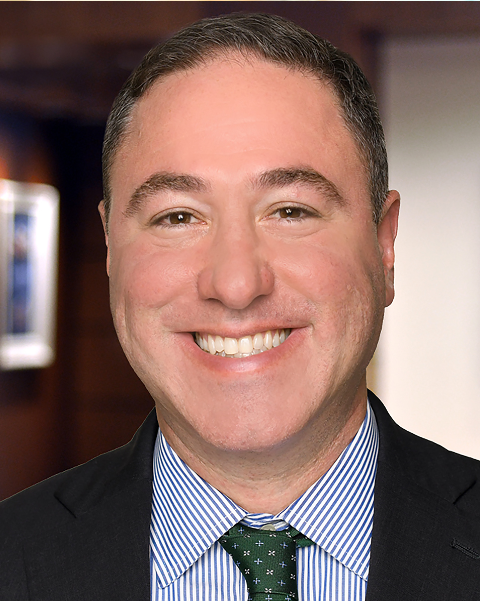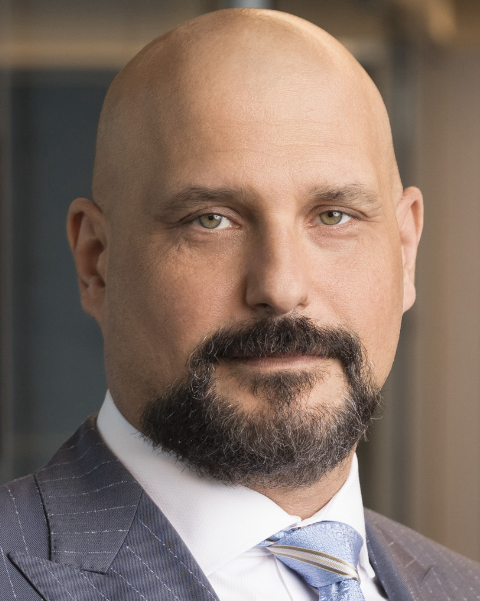Program Agenda
- Friday August 2, 2019

Steve Fogg
Opening Statement by The Network Chair
Welcome from The Seminar Chairs

David Suchar
Navigating Insurance Coverage Disputes — Strategies Promoting a Successful Voyage for Policyholders
Policyholder-side insurance-coverage disputes, including both claims negotiation and litigation, necessitate a different approach from ordinary commercial disputes. Effective insurance-coverage litigation demands a specialized and strategic methodology involving pre-claim preparation, mediation, trial preparation and settlement, while maintaining a deft understanding of all the involved players. This session draws on factual examples and recent cases in which tactical decision-making had bottom-line ramifications on the insured’s claims.

Greg Marshall
Home Sweet Home: Does BMS Harken An End to National Class Actions in Plaintiff-Friendly Venues?
Courts continue to diverge on the application of Bristol-Myers Squibb Co. v. Superior Court (“BMS”) to class actions involving non-resident class members. As some courts have held, BMS effectively imposes a nationwide ban on multi-state class actions filed where plaintiffs prefer, other than where defendants are “at home” and thus subject to general jurisdiction. This session reviews the developing splits in authority, the battleground arguments, and practical issues including when to file BMS motions.

Cabell Clay
Navigating Sex, Gender, and Orientation Discrimination in the Workplace
Under Title VII of the Civil Rights Act of 1964, it is illegal for an employer to discriminate against an individual on the basis of sex. Employers are now addressing the modern-day definition of “basis of sex” to include gender identity and sexual orientation. Additionally, the Supreme Court announced recently that it will hear three cases addressing same. This session explores the status and compliance of murky workplace discrimination laws.

Scott Danner
Panel Discussion: The Intrigue of Internal Investigations
Internal investigations have been a frequent practice in recent years to determine whether workplace policies or regulatory practices have been violated. These investigations, however, can take on a world of their own depending on the client, the scope and reporting structure. This session discusses best practices in conducting an effective internal investigation while effectively dealing with privilege issues and offering the best representation of the client.
Refreshment & Coffee Break

Josh Ferrentino
When The Feds Come Knocking: Tips On Communicating with Federal Investigators In The Early Stages of a Criminal Investigation
The most sophisticated of in-house counsel and other senior executives can be thrown off-guard when federal agents knock on their doors or a grand jury subpoena arrives. In this session, a former Assistant United States Attorney offers his views on how to advise clients to interact effectively with the authorities, while avoiding typical pitfalls, in the early stages of a criminal matter.

Rebecca Stephens
Cannabis and Employment Law
Medical marijuana is now legal in 33 states and in our nation’s capital; and, recreational use is permissible in 10 states. Employers now ponder how this new landscape impacts their workplace policies. Additionally, a growing number of states are writing employment protections into their marijuana legalization statutes. This session addresses the ever-changing employment law issues relating to cannabis, including drug testing policies, employers’ ability to discipline employees under the influence, and reasonable accommodation requirements.

John Mitchell
Avoid the Highway to Hell: Effective Corporate Compliance Programs Can Deter Criminal Liability
Companies stand to benefit when they employ effective corporate compliance programs. These programs can deter criminal conduct by its employees and protect the company from criminal prosecution if any one of its agents violates the law. Effective programs can potentially impact decisions to charge, mitigate penalties, and may lead to lower sentences. This session addresses the implementation of such successful programs and strategies to effectively use them in defending against criminal liability.

Lauren Fisher White
The Effect Of “#MeToo” And “Time’s Up” In Discrimination Litigation
The United States Supreme Court has recognized the relevance and admissibility of pattern evidence in discrimination cases. In the recent past, some may have concluded that “me-too” evidence and the “piling on” of similar circumstances in the workplace were not relevant to individual claims. The public narrative appears to have changed. As a result of the “#MeToo” and “Time’s Up” movements, the presumption scale now seems to tip toward the claimant. This session covers the history of these movements, their impact in elevating the value of “me-too” evidence and recent cases that may be indicative of emerging patterns in how jurors and judges evaluate such evidence.
Break / Collect Lunch for Roundtable Discussion Groups

Nikki Nesbitt
Track A: Equal Access to Goods and Services – The Differences Between Sex, Sexual Orientation, and Gender Identity Discrimination
Anti-discrimination laws prohibit businesses from denying access to their goods and services on the basis of sex. Under the current federal anti-discrimination laws, the term “sex” includes gender identity, although a new proposed rule would change that. Many state anti-discrimination laws also include sexual orientation as a separate protected status. The distinction between these concepts is significant, and protecting one’s business against discrimination claims requires more than just a superficial understanding of the rights and features of these groups. This session discusses the differences of each group and access rights granted under the anti-discrimination laws.

Jerry Glas
Track B: Think Inside the Box: Maximizing Mock Trials and Focus Groups
Mock trials and focus groups are often used to obtain characteristic jury responses and insightful perceptions that translates well for successful trial preparation. In this session, a panel of counsel will share their tricks for maximizing the value of virtual trials, mock trials, and focus groups. They also uncover why and how they intentionally skew results, layer evidence, test controversial arguments, maximize juror participation, and solicit juror bias.

Steele Clayton
Track C: It’s Settled — Effective Strategies for Successfully Resolving Disputes
When you decided to become a lawyer, did you envision spending your days delivering riveting arguments before judges and juries in high-powered courthouses, and now realize the only way to make that a reality is change professions and become an actor? In a “Law and Order” type TV series, there is little worry about cost, time, stress or risk. In reality, all of these factors are considered in the overall litigation strategy. In this session, the panel highlights five settlement strategies that in-house counsel need to have in their playbook and shares their best practices.

Moheeb Murray
Track D: When a Ruling Goes Wrong: Should We Settle, Proceed to Trial, or Seek Interlocutory Review?
When a trial court rules against a client on a critical issue, a lawyer must next examine strategic considerations for potential responses. This roundtable discussion covers the identification of several types of pretrial rulings than can fundamentally impact the course of a trial. What follows is an analysis of each type of ruling and whether ultimate client strategy should be to proceed to trial, settle the case, or seek interlocutory review of the trial court’s rulings.

David Gustman
Track E: Lessons Learned from the Michael Cohen and Michael Avenatti Fiascos
Michael Cohen and Michael Avenatti have provided countless hours of fascinating and alarming dialogue throughout the legal industry. Each situation provides valuable lessons on what to look for in representing high-profile individuals and corporations involving criminal and civil liability. This audience-interactive session discusses the status of these two cases, as well as, typical charges, pleas and issues to be aware of when representing corporations and high-profile clients threatened with legal action.

David Atkinson
Ethical Considerations for Defense Counsel, the Client and the Insurance Client in the Tripartite Relationship
Defense counsel retained by insurance companies may often face a variety of ethical predicaments in the representation of their clients. In this roundtable, participants discuss the various issues based on who their client is, and how coverage considerations impact defense strategy and impact reporting.

Phil Graham
The Defense Lawyer’s Identity Crisis — Understanding Who Your Client Is in a Tripartite Relationship
Determining a future potential conflict in tripartite relationships involving lawyer, insurer and insured can get thorny. Even the well-versed defense lawyer who has a good understanding does not insulate him/her from conflicts or liability. This session provides examples of problematic areas and tips on how to avoid them.

Roger Hanshaw
ETHICS: The Lawyer as a Board Member – Ethical and Practical Considerations
There are two basic fiduciary duties expected of board directors: the duty of loyalty and the duty of care. Then, there are additional considerations that come into play when a lawyer serves on a board. This session discusses, in more depth, the roles and responsibilities of board members, offers practical considerations and suggestions regarding the discharge of one’s fiduciary duties as a director, and outlines the requirements and implications of the Model Rules of Professional Conduct for a lawyer serving as a member of a board of directors.

Deirdre Wheatley-Liss
ETHICS: Enhancing Litigation Strategy with Cyber/Deep Web Investigations: What Witnesses Don’t Want You To Know
Cyber and deep web investigations can be a great tool for litigators seeking valuable and previously-undisclosed information on potential witness. But, beware, as the resources that are now accessible also present issues and concerns that must be addressed and resolved to avoid ethical dilemmas. This session discusses the mechanisms/services available as well as the dangers to utilizing the amassed information.

Jack Sharman
ETHICS: Practice Lessons from Public Corruption
When can professional judgment and an over-zealous representation expose in-house and outside lawyers to criminal prosecution? This session offers practical lessons and takeaways from a four-week public-corruption federal criminal trial of a lawyer and his client.

Nikki Nesbitt
ETHICS: Walking The Thin Line Between Preparing a Witness and Coaching a Witness
The rules of professional conduct prohibit attorneys from telling witnesses what to say, yet they permit and even encourage them to prepare their witnesses for testimony. The thin line between the two areas can be ambiguous. This session will showcase examples of proper preparation and inappropriate coaching to ensure proper conduct.

